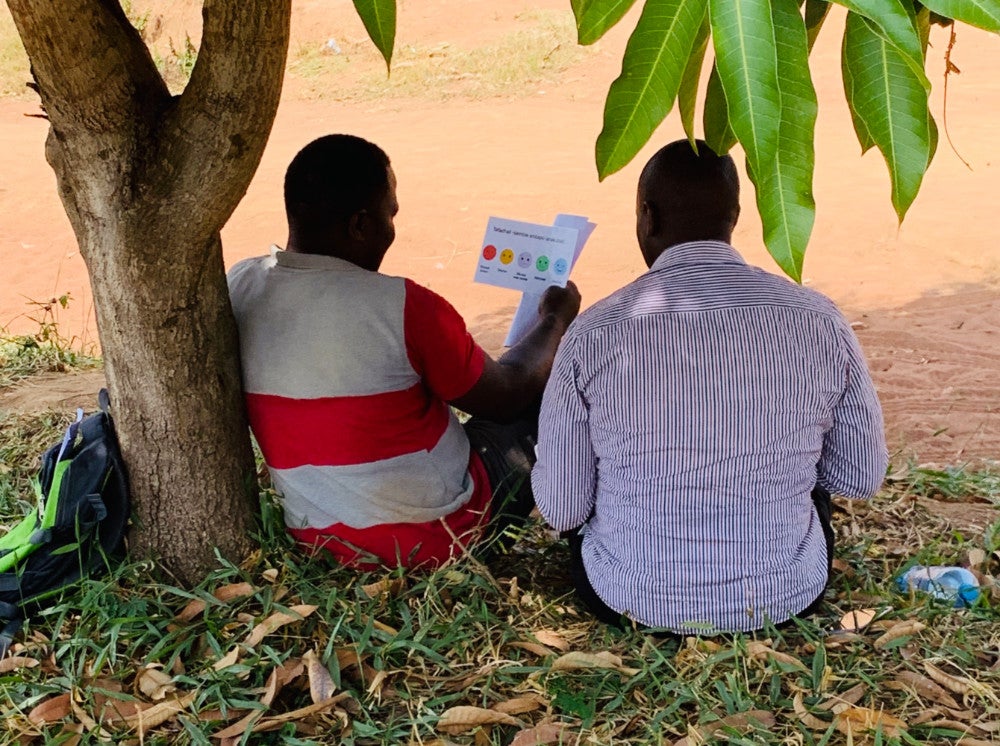
Parachute Failure
Across the social sciences, from anthropology to psychology, researchers have woken up to the realization that a true understanding of humanity requires collecting data across diverse cultural settings. In recent years, this has increased demand for fieldwork-based studies, often involving researchers from North America and Europe collecting data from communities within relatively low-income nations.
In a new paper in Nature Human Behavior, an international team of social scientists emphasizes that as interest in fieldwork-based studies continues to grow, researchers must also do more to forge equitable collaborative partnerships. They argue that visiting scholars too often fail to work with national research institutes, and that the essential contributions of local researchers are often uncredited or insufficiently compensated.
Mark Urassa, senior researcher at the National Institute for Medical Research in Mwanza, Tanzania, and David Lawson, associate professor in the Department of Anthropology at UC Santa Barbara and leader of the Applied Evolutionary Anthropology Lab, co-first authored the paper. They are joined by contributing authors from Ethiopia, India and the United Kingdom. The paper adds to growing calls across the social sciences to value diversity and improve research practice.
“It’s alarmingly common to see prestigious publications drawing on data collected in relatively low-income nations, yet an author list devoid of local researchers,” Lawson said. “This is indicative of ‘parachute’ research, whereby visiting researchers extract the data they want, while circumventing national research institutions or giving little to no credit to the local collaborators that enable their research. We provide recommendations for how we can break these old habits, and make field research more ethical and inclusive.”
The team recommend a number of actions, including cross-national grant-sharing, educating researchers about the ethics of ‘extractive research,’ increasing awareness of relevant local institutions and academics, hosting conferences outside of Europe and North America, and diversification of journal editors and grant reviewers. They also highlight the value of mentorship activities to support universities and research centers in low and middle-income nations.
“It was important to us to recognize that effort is needed on both sides,” Urassa said. “Visiting researchers must pay fairly for the skilled labor of local researchers, and respect the jurisdiction of national institutions. Lower income countries can also do more to take advantage of existing opportunities for collaboration and invest in the career aspirations of our junior social scientists as future research leaders.”
Positive change may require rethinking the procedures that researchers go through when planning studies and disseminating their findings.
“One problem is that ethical review boards focus heavily on risk management, aiming to minimize potential harms to study participants, but rarely ask questions about how the rewards of commodified data are shared,” Lawson said. “We need to ask more questions about who benefits, including the flow of grant money, rather than fixate on risk. Gaining tenure and career progression also requires near constant productivity, via grants and publications. Meanwhile, the time and effort taken to forge equitable global research partnerships is often unrecognized and undervalued.”
The best solutions may differ by context, he said, and in some cases collaboration and co-authorship can be challenging.
“Many anthropologists work with remote or marginalized populations, who may have tension with national governments or majority ethnicities. Local researchers may also not always have the same priorities or expertise as visiting academics, stifling collaboration,” Lawson noted. “But we shouldn’t allow barriers that apply in a minority of cases to limit our commitment to change. We need to challenge ourselves in these discussions. Everyone agrees that research practices are more ethical now than a generation ago. We should also be upfront about the need for continued improvements.”
Lawson also highlighted how their approach differs from past discussions of the ethics of fieldwork in the social sciences.
“Within anthropology and cross-cultural psychology these discussions often focus on best practices at the very localized level of engaging respectfully with study participants and communities,” he said. “We draw on parallel discussions in global health, where value is increasingly placed on research partnerships that both respect local communities and foster the growth of national research centers.
“We emphasize that ostensibly altruistic activities, like paying for schoolbooks or medical care, are important and beneficial activities characteristic of many long-term field programs managed by high-income country researchers,” Lawson continued. “Yet we must be attentive to the fact that such activities rarely foster local academic capacity and research infrastructure, which are too often left dependent on external expertise with limited opportunity for independent growth.”
When considering manuscripts for publication, many global health journals now encourage or require evidence of collaboration and co-authorship with researchers from the same country as where the data are sourced. This means that when local collaboration was not possible, visiting researchers are encouraged to think about how they can be more inclusive in future projects. The team notes that this stance is not shared by social science journals, but could help to incentivize a change in current norms.
“We are certainly not asking visiting researchers to add ‘token’ local coauthors simply to signal inclusive practices, but then carry on as normal,” Urassa said. “This would be counterproductive. We are suggesting that we all do the necessary work to forge equitable partnerships so that we can work together on common priorities. This will benefit both the research and researchers!”
Urassa and Lawson currently collaborate on research into family structure and wellbeing in the Mwanza region of Tanzania. Their recent research focuses on gender equality and the causes and consequences of early marriage, and is supported by the National Science Foundation.



